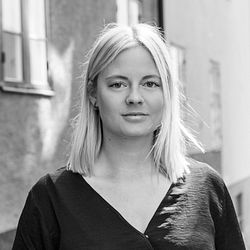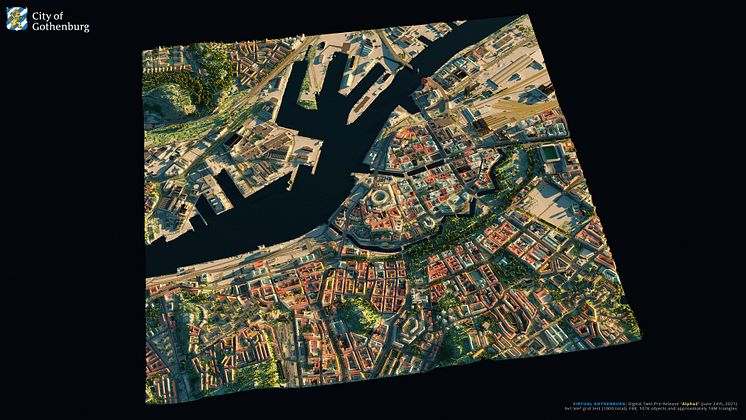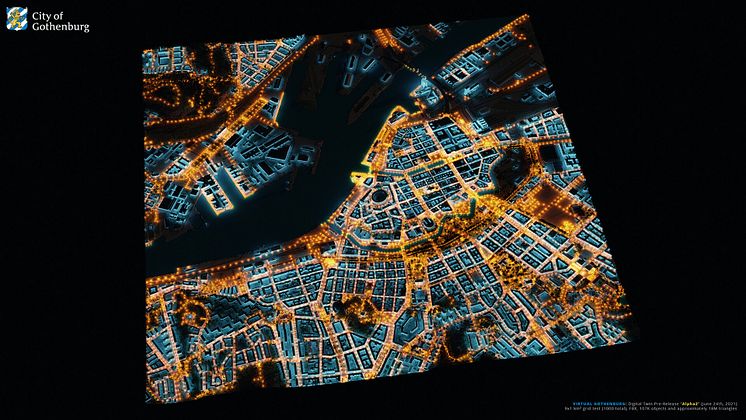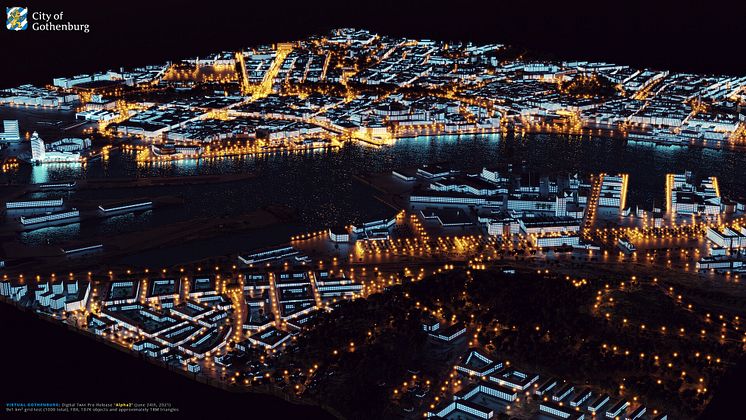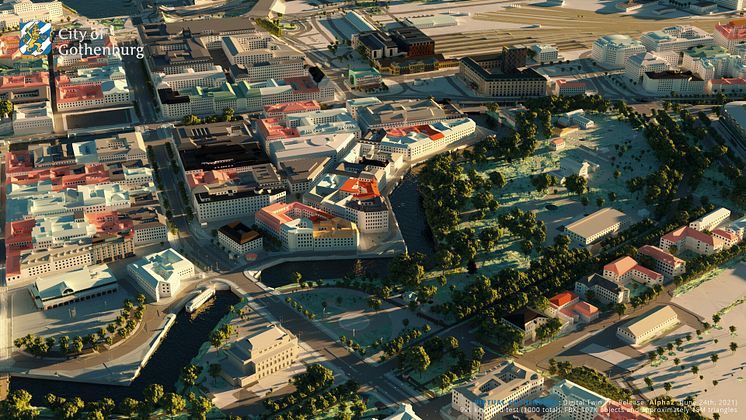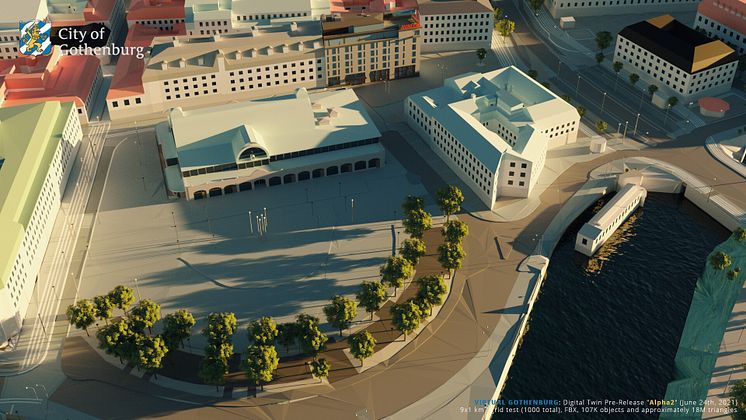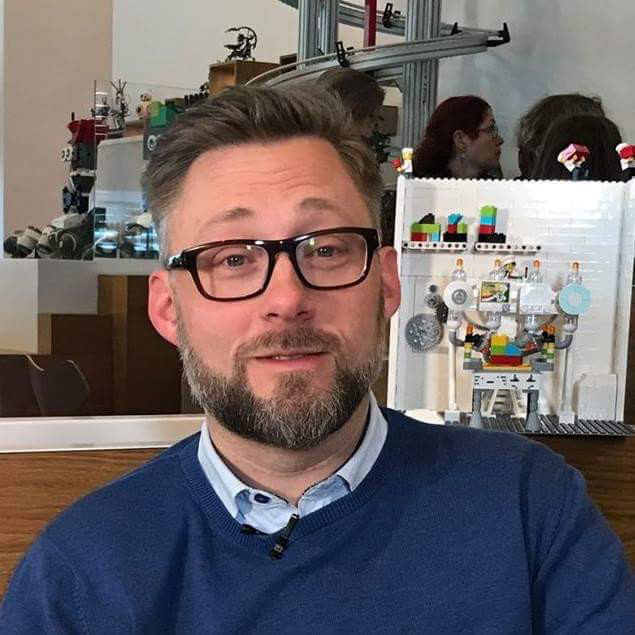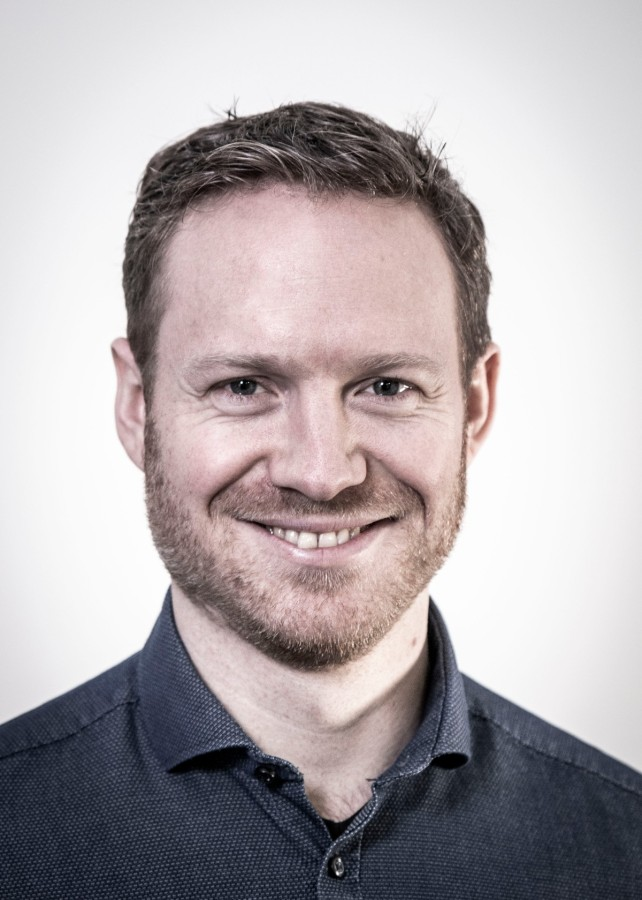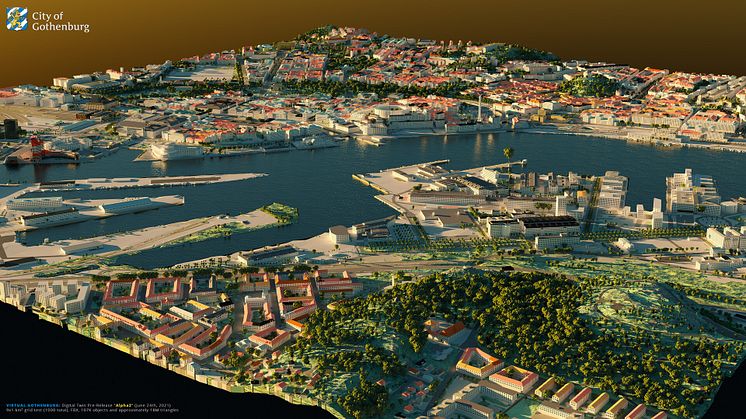
Blog post -
How digital city twins create sustainable smart cities
The hype has built up considerably around Metaverse, Omniverse and digital twins. A new level of realistic virtual worlds working with open source code revolutionizes various forms of collaboration and creates new opportunities. The technology is being applied to everything from computer games to planning urban development and training self-driving cars. By using virtual environments which we can create together with people who are not necessarily thinking along the same lines as ourselves, and with the rapid increase of digital twins, we can simplify and meet society's challenges and predict the future.
This concept is not entirely new. In the early 1970s, NASA was the first to sniff out what we today call digital twins. The Apollo 13 spacecraft announcement, "Houston, we have a problem" when an oxygen tank exploded and damaged the main engine, turned the journey to the moon into a rescue operation. Fortunately, NASA had a model of Apollo 13 on Earth that allowed engineers to test possible ground-level solutions, which helped to bring the astronauts down alive.
Today, NASA's models are fully digitalized, and the defence industry has followed suit. The US military recently introduced a requirement for all new equipment delivered to be accompanied by a digital twin to, among other things, be able to evaluate and train in simulators. The basis for a digital twin is a 3D model, which can then reflect the original's condition and behavior based on data gathered from reality. There are several areas of use where three different needs are frequently used:
1. Be able to understand how something is structured and works in the current situation.
2. Be able to control functions based on what happens in real time.
3. And perhaps most exciting, to be able to predict and plan what might happen in the future based on simulated events.
Crash tests carried out in the City of Gothenburg
Many have discovered the benefits and potential of digital twins. This includes everything from the construction and real estate industry to product developers and manufacturing, which provides enormous opportunities provided by new technologies. This is a wonderful dream tool for the urban developer. From Gothenburg to Singapore, several cities have all created a digital city twin. Urban planning requires building and planning in an intelligent and efficient manner. The digital city twin makes the smart city's vast amounts of data available as a tool for holistic planning and rapid evaluation of different scenarios. For example, what happens if we build a parking garage here? How can traffic flow be altered by means of a bridge? By simulating different scenarios, using data available from various sensors around the city, information can be collected about how development plans can be taken into account regarding many other aspects, from the local environment and noise level to how light falls.
Gothenburg's digital twin includes a testbed to evaluate different applications. This goes by the name Virtual Gothenburg Lab and is a Vinnova-funded project in which several different actors work together to gain from each other's expertise. HiQ is developing various parts of the testbed, together with several other players.
“The basis uses a 3D model, where you can, among other things, walk around VR, experience the city virtually and test and simulate many different cases. Virtual Gothenburg Lab runs several pilot projects that will result in the long-term development of Gothenburg's digital city twin and its possibilities. This can be summed up as a form of crash testing in Gothenburg to shape the city along with citizens, business, academia and the public sector," says Viktor Peterson, Visualization Lead at HiQ.
Quick solutions through game engines
All urban planning offices, architects and builders have their areas of interest in urban development. Johan Cedmar-Brandstedt, Business Developer at HiQ, sees considerable benefits to be had in new forms of collaboration. In the Virtual Gothenburg Lab pilot project "The city's silhouette", led by HiQ, game engines were evaluated as a platform for this dialogue with encouraging results.
"By lifting the city model and its data into a game engine, we literally create new perspectives," says Johan Cedmar-Brandstedt. "What the experts are accustomed to reinterpreting abstractly from statistics and map images has become an enveloping reality, which gives rise to completely different insights. In addition to the cold top-down perspective, we obtain a direct, embodied, personal relationship with the issue in which we work, and in the places we care for and develop. Almost more important, is the potential for the technology to create consensus and new forms of collaboration. The next step being occurrences of torrential rain and stormwater need to convey insights and suggestions to experts in completely different areas, such as traffic planning, community building and park management. If used correctly, the technology becomes a shortcut to a multifaceted solution dialogue and a powerful democratic tool for decision-makers, laypeople and the general public. Crash tests can be exploited in good time and create better anchoring, which generates a higher quality of decisions made and results in considerable economic gains."
The gaming industry is showing us the way by means of VR
We are already beginning to see the effects of digital twin usage, and digital development has taken off at rocket speed during the pandemic. People are working more and more together digitally, across national borders and sharing data.
"Events are now occurring rapidly, including the development of digital urban twins at different ends. Helsinki, for example, has developed twins for tourism. In the future, people will be able to become virtual citizens owning their own homes. There will be shops to shop in and participation in concerts, art exhibitions and virtual games, all in VR. Thus, creating a smart and climate-friendly way to market the cities of the future," says Johan Cedmar-Brandstedt.
The gaming industry exonerates the possibilities of interacting with city twins. Gothenburg released the city in Minecraft format for use in the classroom a couple of years ago. The idea is to place urban development in the hands of the younger generation. Assassin's Creed is a good example of a game occupying the forefront of large open game worlds based on real-world space measurements.
"Having created the Giza pyramids and the alleys of Venice in which to hunt villains with a compass it is only a short step to enabling developers to create a more classroom-friendly virtual guided tour, Ubisoft being a good example. And as a player experiencing an exciting scene on a rooftop in virtual Venice, the experience really does hit the spot," says Johan Cedmar-Brandstedt.
Digital twins - a tool for democracy
Involving more people at an early stage is now something that has become easier thanks to technological development. Co-creation and democracy are essential keywords in today's urban planning. DUET (Digital Urban European Twins) is an example of a smart innovation initiative using digital twins to help the public sector make enhanced democratic and effective decisions.
"3D cities will make it easier for citizens to get involved politically in the future and subscribe to plans that concern you and your local area. Citizen proposals can be made more accessible, and it will be easier for people to understand conflicts of interest and how decisions are made, and how to come up with their own development proposals. As one of the Virtual Gothenburg Labs pilot projects looked at, it should become possible to use smartphones to place park benches, plants and houses and see the results using AR technology. Urban development affects everyone," says Viktor Peterson.
Avoidance of actual traffic accidents
Another Virtual Gothenburg Lab pilot project HiQ is working on is CoExist 2, led by Volvo Cars. Soon, autonomous cars and people will be able to share roads simultaneously. New technology will bring about new ways of predicting different situations. It is not only in space that it is difficult and dangerous to test and collect certain types of data. With the help of a digital twin, autonomous vehicles can test how a car would handle different situations that may arise without risking actual traffic accidents. With the use of data and simulations, we can understand and refine how a car sounds, behaves and interacts in different situations.
“HiQ can solve the whole puzzle”
For the past two years, the Virtual Gothenburg Lab project has been run by Visual Arena at Lindholmen Science Park and the City of Gothenburg. Participation in the Virtual Gothenburg Lab has opened an opportunity for HiQ to do what they do best, to innovate across the entire range from new and in-depth technological innovation and mission-critical systems to new digital services. And in complex collaboration puzzles with many parties - in this case, 25 different partners from business, academia, and the public sector.
HiQ has been a driving force for two of the six major work packages and has acted as a bridge from customer insights in the pilots to formations of the testbed, having led this work using long-term operation and financing. Johan Cedmar-Brandstedt says:
"Three things became crystal clear for us to focus upon: Firstly, the power of data. How do we take advantage of the massive computing power in the cloud and people's pockets? Not least, this 700 square kilometre 3D model and its ability to understand the enormous wealth of open data out there. Secondly, the power of cooperation. Both from the local collaboration perspective and how we can make a difference based on places and issues we care about and how cities can share knowledge and solutions with each other. Thirdly, partly the power of the people. How do we engage the emerging generation and civilian hackers in building the city? How do we utilize the older generation's experience in a context of completely new technical possibilities?"
Building a testbed takes time, but it's worth it. Being able to crash-test the future brings about enormous value to the city, the business community and the inhabitants.
"We have achieved this in a way that creates the holistic perspective and the system innovation that the changeover requires. Most of the building blocks are now in place. It will be very exciting to see what we can build on top of this platform," says Johan Cedmar-Brandstedt.
Are you curious about how your organization's ideas and opportunities could scale-up further on the digital urban twin? Contact us or surf to Virtual Gothenburg Lab's website to get started and find all parties' contact information, project results and conclusions.
"We can connect our entire wide range of services and the in-depth knowledge we have at HiQ in order to put together a complete puzzle," says Viktor Peterson.
Additions
Virtual Gothenburg Lab home page:
https://visualarena.lindholmen.se/virtual-gothenburg-lab
Parties in the Virtual Gothenburg Lab include Göteborgs Stad and several management organisations, Lindholmen Science Park, Visual Arena, AI Innovation of Sweden, Business Region Göteborg, Göteborgsregionen, Universeum, RISE Interactive, Chalmers Tekniska Högskola, Volvo Cars, Tengbom, Berge, AFRY, Ramboll, Insert Coin, HiQ, OutHere, Atvis, Bumbee Labs, Unicornsulting, Ordrum.
